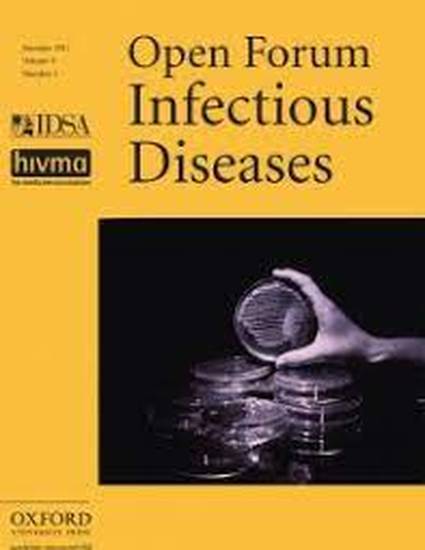
Article
1332. Identification of Genetic Markers Linked to Recurrent Methicillin-Resistant Staphylococcus aureus Skin and Soft-Tissue Infections
Open Forum Infectious Diseases
(2019)
Abstract
Background. Methicillin-resistant Staphylococcus aureus (MRSA) is one of the most common and problematic causes of bacterial skin and soft-tissue infections (SSTI). MRSA tends to form complex skin infections, furuncles, boils and abscesses. Many patients go on to have recurrent infections, requiring significant additional therapy to treat each infection as well as needing to undergo decolonization of the skin in order to remove the bacteria and try to prevent future infections. A test to distinguish patients at risk for recurrence can allow earlier more aggressive treatment for those at risk for recurrent infection. This can potentially reduce healthcare costs, prevent future hospital admissions and surgical procedures, and reduce loss of productivity experienced by patients suffering from multiple recurrences. Methods. A genome-wide association study using the Affymetrix gene array was performed on 11 patients with confirmed recurrent MRSA SSTIs and 3 controls who never developed an SSTI despite confirmed heavy exposure to MRSA in order to identify single nucleotide polymorphisms (SNP) associated with recurrent MRSA. The 10 genes identified were then fully sequenced using an Illumina NextSeq 500 to identify additional SNPs. Results. A total of 22 SNPs were found in 10 separate genes which distinguished patients with recurrent MRSA from patients without recurrent MRSA despite heavy exposure. The 10 genes are shown in Table 1 along with a representative SNP. The P-values for each individual SNP were between 3.5 × 10−5 and 1.2 × 10−7. Conclusion. This study provides the first evidence of a genetic risk for those patients who develop recurrent MRSA SSTIs. The majority of the genes involved are related directly to the skin, not to immune functions thus it appears the major risk factor for development of recurrent MRSA SSTI is related to the barrier function of the skin and not to an immune defect. Being able to determine which patients are at risk for recurrence at the time they first present with an MRSA SSTI would be of great help in preventing future recurrences, reducing morbidity and reducing healthcare costs.
Disciplines
Publication Date
October 23, 2019
DOI
10.1093/ofid/ofz360.1196
Citation Information
Sims M. 1332. Identification of Genetic Markers Linked to Recurrent Methicillin-Resistant Staphylococcus aureus Skin and Soft-Tissue Infections. Open Forum Infect Dis. 2019 Oct 23;6(Suppl 2):S481–2. doi: 10.1093/ofid/ofz360.1196. PMCID: PMC6809032.
